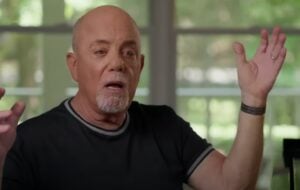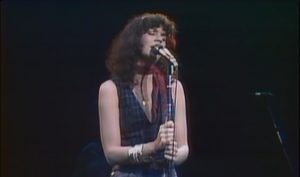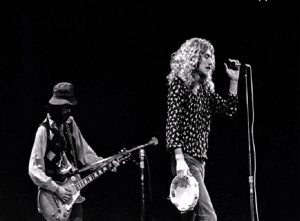The Story Of Paul McCartney Accusing A Pop Girl Group Of Plagiarism

via @Raised On Radio / YouTube
Paul McCartney has spent a lifetime at the top of the music world. As a member of The Beatles and later a successful solo artist, his songwriting has shaped generations. But with influence often comes imitation, and McCartney himself hasn’t been immune to accusations of borrowing from others.
Early in his career, The Beatles faced repeated claims that they’d lifted elements from rock ‘n’ roll greats like Chuck Berry. Though these situations rarely escalated into serious legal issues, they left a mark on how the band navigated their musical legacy. Ironically, years later, McCartney found himself on the other side of that dynamic.
Instead of defending himself against accusations, McCartney spotted what he believed was a case of his own work being subtly borrowed—this time by one of the most iconic R&B groups of the ’90s: TLC. And the song in question? His lesser-known gem, “Waterfalls.”
The Hidden Gem That Was McCartney’s “Waterfalls”
Released in 1980 on the McCartney II album, “Waterfalls” wasn’t a major commercial hit, but it held a special place in Paul’s heart. The song features a gentle, minimalistic arrangement and haunting lyrics that explore emotional vulnerability. Over the years, it developed a cult following among McCartney fans who appreciated its introspective tone.
In a 2007 interview with The AV Club, McCartney reflected on some of his solo tracks that he felt deserved more recognition. He mentioned “Waterfalls” by name, calling it “nice” and placing it alongside other underrated tracks like “Daytime Nighttime Suffering.” His tone was modest, but his affection for the song was clear.
This appreciation for “Waterfalls” came with a subtle sting. During the same interview, McCartney referenced TLC’s global hit of the same name, hinting at its opening line’s uncanny resemblance to his own. “Excuse me?” he quipped, clearly noting the similarity but choosing not to pursue the matter further.
TLC’s Smash Hit and the Striking Resemblance
TLC’s “Waterfalls” debuted in 1995 and quickly became one of the trio’s signature songs. It tackled serious topics like HIV and drug violence, all wrapped in a smooth R&B groove and a hook that stuck. It was socially conscious and commercially successful—a rare and powerful combination in mainstream music.
But to McCartney, something about it hit too close to home. The opening line—“Don’t go chasing waterfalls”—echoed the beginning of his 1980 song: “Don’t go jumping waterfalls.” While the rest of TLC’s track diverges significantly, the initial lyrical structure and melodic phrasing raised eyebrows, especially for those familiar with both songs.
Despite the obvious similarity, McCartney didn’t take legal action. Whether it was artistic grace or sheer disinterest in a lawsuit, the Beatle let it slide. However, the moment did open up a conversation about influence, homage, and how thin the line can be between inspiration and imitation in the music industry.
View this post on Instagram
The Case That Never Was
Given his stature, McCartney could have easily mounted a copyright claim. He had both the artistic credibility and legal resources to make a compelling case against TLC and their songwriting team. Yet, he didn’t. Instead, he voiced his observation and moved on, with only a tinge of annoyance.
There’s a good chance that TLC—or at least someone involved in the song’s production—had heard McCartney’s original. He’s not an obscure artist, after all. But intent is hard to prove, and McCartney seemed more amused than outraged by the situation. Still, his subtle callout in the interview suggested he wouldn’t have minded a nod of recognition.
In the end, the incident never made it beyond a few headlines and fan debates. It wasn’t a feud, nor did it escalate into public drama. But it left a curious footnote in both artists’ histories: a quiet brush between two generations of music icons, each with their own interpretation of a simple word—waterfalls.
View this post on Instagram
Legacy and Reflection
Looking back, McCartney’s “Waterfalls” has gained a renewed appreciation, partly because of this strange connection to TLC. Though not a commercial juggernaut, it remains a deeply personal track for McCartney and a standout example of his post-Beatles creativity. The song’s message—urging caution and emotional vulnerability—resonates more with age.
McCartney once explained the meaning behind the track as a plea to avoid unnecessary risks, especially in love. “I need you,” he said, capturing a sentiment that felt more mature than his earlier work. It was a message of stability in a world too often drawn to chaos.
As for TLC’s version, it continues to thrive as a generational anthem. It’s possible that the resemblance to McCartney’s track was a coincidence. Still, even coincidences can have consequences, especially when they intersect with legends. Whether intentional or not, the story reminds us that even the most original ideas can echo louder than expected.













